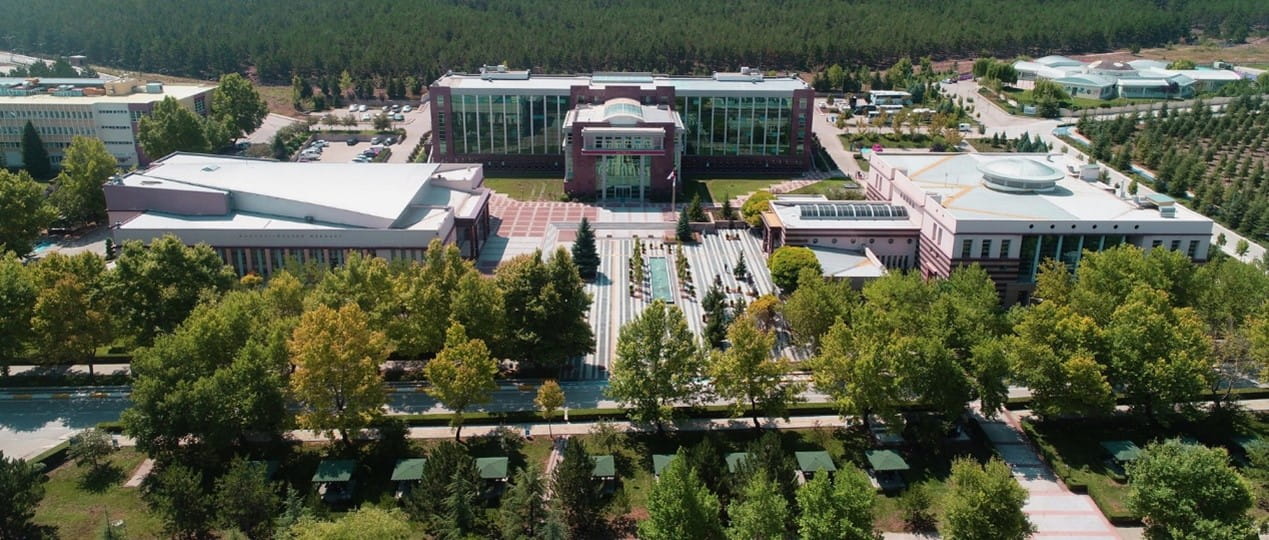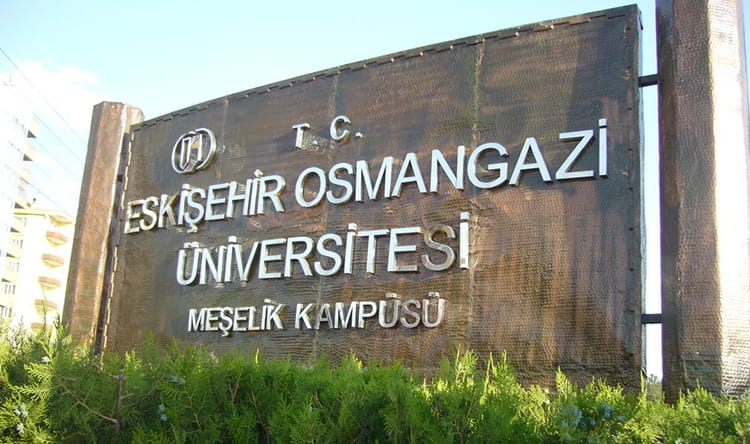Workshop Title:
Patient- and Tissue-Specific Approaches in Implantable Biomaterial Design, Development and Production
Date:
August 23rd, 2024 (GMT+3)
Organizer:
Biomedical Engineering Department, Engineering and Architecture Faculty, Eskişehir Osmangazi University
Keywords:
- Biomaterials
- Implant Design
- 3D-Printing
- Mechanical Characterization
- Electrochemical Characterization
- Tissue Compatibility
- Cell Culture
Workshop Chair:
Personal Bio:
Omer Burak Istanbullu is an Assistant Professor and department vice chair of Biomedical Engineering Department at Eskisehir Osmangazi University. After studying in the field of biomedical engineering and specializing on tumor segmentation from magnetic resonance images at Erciyes University, he then pursued a Master's program at Istanbul Technical University and Erciyes University with the scope of biomaterial-medical imaging device compatibility. Following the Master's degree, he received a Ph.D. from Erciyes University, in the field of biocompatibility improvement of implantable intravascular biomaterials using biomimetic surface modification approaches. Dr. Istanbullu is experienced in the development and improvement of biocompatible materials using biomimetic approaches, combining the computational methods and experimental analysis to achieve the most effective solutions for the challenges related to biomaterials. His research interests include surface modification by biomimetic approaches, diamond-like carbon and carbon nanotubes, electrochemical, thermal and mechanical characterization of biomaterials, anticorrosive and biocompatible surface development. The overall goal of Dr. Istanbullu through his work is contributing to the development of new and innovative biomaterials that have the potential to reduce the biomaterial-based risks in the field of biomedical engineering.
Workshop Description:
Background:
The design of implantable biomaterials plays a crucial role in the success of surgical intervention applications. In the context of implant production, factors such as implant geometry and shape, surface characteristics, and mechanical behavior alongside the material selection, significantly impact on tissue-integration and biocompatibility. Therefore, improvement in such properties directly contribute in the treatment success and durability of both permanent and biodegradable implants. The implants must address diverse requirements arising from the varying anatomical structures of individual patients and the characteristics of different tissues within the human body. Thereby, biomaterial and implant designs need to be tailored to be patient- and tissue- specific to ensure optimal performance. This customization is particularly crucial in orthopedic applications where varying features are expected from the implants which interact with lower or upper extremity bones, especially for load-bearing applications. Thus, the mechanical features and surface properties of implants should be aligned with the anticipated behavior of the target patient's anatomy and the specific target tissue. In light of these considerations, each implantable biomaterial necessitates a comprehensive design, development, and production process that takes into account the mechanical, biological, and chemical aspects of the target tissue and anatomy.
Goal/Rationale:
The workshop aims to address the effects of biomaterial design on mechanical and biological behavior of the implants. The content lies in understanding and optimizing the collective impact of implant geometry, shape, surface characteristics, and mechanical behavior on tissue compatibility. The necessity for customization, particularly in orthopedic applications with load-bearing implants, adds intricacies due to diverse patient anatomies and tissue characteristics. Recent advances including the application of advanced manufacturing techniques such as 3D printing, 3D bioprinting, 4D printing, and micro/nano-scale engineering, offer precise customization and bridging over the implant design and production. Furthermore, biomimetic approaches, inspired by natural biological structures, contribute to improved tissue-compatibility in physical, chemical and biological manner. The workshop has three key objectives: first, to comprehensively understand the interactions of implant properties with target tissues; second, to explore strategies for tailoring biomaterial and implant designs to be patient- and tissue-specific by both theoretical and experimental approaches; and third, to showcase recent advances and innovations in biomaterial design, emphasizing breakthroughs in biomedical and materials science, tissue engineering, and nanotechnology. Thus, the workshop serves as a platform for researchers and practitioners to exchange knowledge and insights, fostering collaboration and propelling the field of implantable biomaterials towards new frontiers.
Scope and Information for Participants:
The workshop invites researchers, academics, practitioners, and professionals in the fields of biomedical engineering, bioengineering, materials science, and chemical engineering to participate. This workshop covers the topics of biomaterials design, development and production, mechanical and electrochemical characterization, surface modification and functional enhancement considering target-tissue specifications and target-patient features. The topics will be addressed by both finite element-based and experimental analysis including mechanical tests, cell and culture applications, and electrochemical corrosion behavior analysis. Molecular dynamic simulation studies and practical approaches in the analysis of the implants under various conditions are also welcomed in this workshop. Attendees will have the opportunity to engage in discussions, network with peers, and learn about cutting-edge computational modelling techniques and applications in biomaterials.
Venue:
Büyükdere Meşelik Yerleşkesi, 26040 Odunpazarı/Eskişehir, Turkey

VISA:
(www.mfa.gov.tr)
Visitors who are not exempt from entry visa must obtain their visas or schedule an appointment with the Turkish Consular offices via Pre-Application System for Turkish Sticker Visa (www.visa.gov.tr). The applicants who meet the requirements will be directed by the Pre-Application System for Turkish Sticker Visa to the e-Visa system (www.evisa.gov.tr) In those countries where Türkiye does not have a consular representation can also use online scheduling for appointments with the nearest accredited consular office of Türkiye.
- In order to avoid inconveniences that may be caused by delays in processing, it is recommended to apply for visas at least one month in advance before the planned travel.
- The visas submitted to foreigners do not guarantee absolute rights of entry to Türkiye.
- Visa fees are not refundable in cases where applications are rejected.
- All applicants are required to have a medical insurance that will be valid during their stay in Türkiye.
- The length of stay provided by visa or visa exemption cannot exceed 90 days within each 180 days. The regulation of 90 days of stay within the last 180 days is binding for all foreigners that will travel to Türkiye.
- It is not possible for foreigners holding two passports to stay in Türkiye for 90 days each with their two different passports within the last 180 days.
- In all types of visa applications, Turkish consular offices may issue visas with a maximum duration of stay of 90 days. The foreigners who wish to stay longer than 90 days in Türkiye, should apply for "Short Term Residence Permit" at the Provincial Directorate of Migration Administration in order to extend their residence.
- The residence permit of the foreigners will be cancelled if they stay outside Türkiye for longer than 120 days in total during the last year.
- For United Nations (UN) Travel Document (Laissez-Passer) holders who have blue UN travel documents, visa exemption with 90 days length of stay within the preceding 180 days may apply during their official visit to Türkiye if they can certify their official assignment. Red UN Travel Document holders, shall be exempt from entry visa and may stay in Türkiye 90 days within the preceding 180 days regardless of their purpose of visit. General visa provisions shall apply for Blue UN travel document holders subject to regulations specified according to their country of origin.
- Visa applications for travels except for touristic or trade purposes (work or study etc.) will need to obtain visa through Turkish Representations in the abroad.
- Regardless of the visa regime applied towards the citizens of a country, the travel document holders of that country need to obtain visa from Turkish missions beforehand.
- Any applicant under the age of 18 must submit official written approvals from both parents. For those applicants who certify that their parents are officially porced and prove the parent holding their custody as well as for those with one parent deceased, visas may be issued in accordance with their purpose of visit.
- The authorization of processing the residence permit applications submitted by the following persons who enter Türkiye availing visa-free regime and without requirement of obtainment of Student Visas lays with Local Immigration Offices (Provincial Directorates of Migration): Foreigners who arrive in Türkiye upon invitations by universities under Turkish Higher Education Board to study at the associate, undergraduate, graduate, post-graduate, Ph. D levels pursuant to international student exchange programs, cultural programs as well as under EU Education and Youth Programs.
- For foreigners wishing to enter Türkiye via naval ports with touristic purposes, visa-free entry permits may be issued by the local governorates. These permits shall have a maximum 72 hours duration of stay and will be only valid for sightseeing purposes in the vicinity of naval ports where they entered the country. This practice, as it intends to facilitate entry for those visitors subject to visa, does not entitle visitors to visa. Passports of these visitors are not retained by the border authorities; however, visitors are given "Harbor City Entry Permit" which is required to be returned to the authorities upon their exits.
- Any piece of data submitted here may be processed and stored in database accessible to the relevant Turkish authorities in accordance with their respective mandates.
Tourist Visa
- If an invitation letter is submitted for a Touristic Visa application, it must include the inviting person's TR Identity Number, clear identity, the list of invitees, permanent address, contact number, length and purpose of stay and the affinity with the applicant must be stated in the letter. If the inviting side is an organization or a company, tax registration certificate of the organization will be required. In the invitation letter it is also required for the inviting person/authority to pledge for covering victuals and accommodation expenses and for taking their own responsibility. The applicant is required to have sufficient and/or regular remunerations.
Attend in person:
If you want to attend the workshop on-site, please email the Conference Committee: [email protected].
